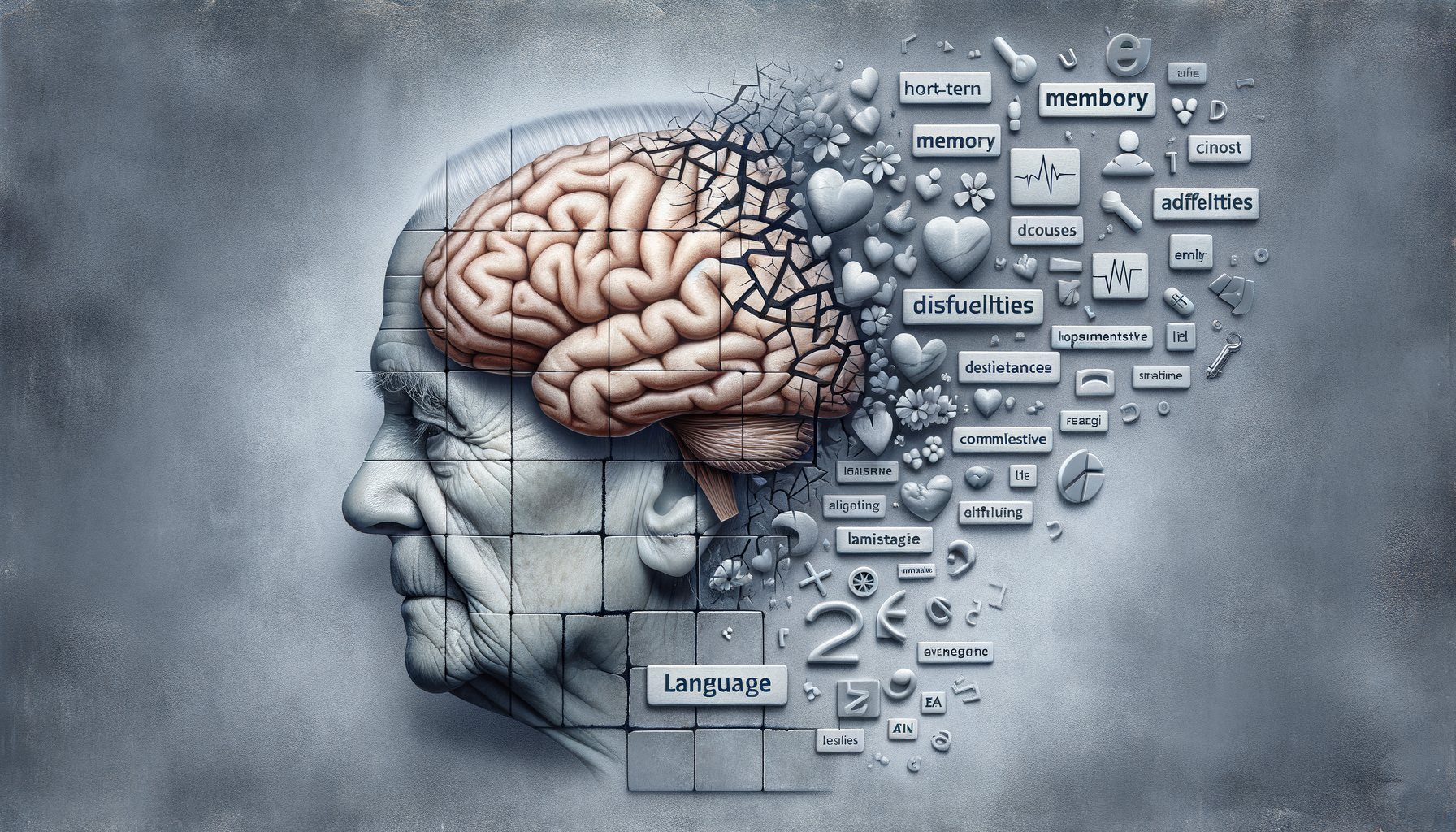
Early Signs of Dementia: A Guide to Recognizing Symptoms and the Importance of Timely Assessment
Understanding Early Signs of Dementia
Dementia is a complex and often misunderstood condition that affects millions of people worldwide. Early detection plays a crucial role in managing the disease effectively. Recognizing the subtle early signs can make a significant difference in the quality of life for those affected. These signs often include memory lapses, confusion, and changes in behavior or personality.
Identifying these early indicators can be challenging, as they are often mistaken for normal aging. However, when these symptoms become frequent or severe, they may signify the onset of dementia. For instance, a person might forget recent events or appointments, struggle to follow conversations, or exhibit noticeable changes in mood and personality.
Each type of dementia presents unique symptoms. For example, frontotemporal dementia often leads to changes in personality and behavior before memory loss becomes apparent. Understanding these distinctions is vital for early intervention and management.
Short-Term Memory Loss: Causes and Implications
Short-term memory loss is a common early sign of dementia and can have various underlying causes. In the context of dementia, it often results from damage to brain regions responsible for storing and retrieving recent information. This can lead to difficulties in remembering recent conversations, events, or tasks.
Several factors can contribute to short-term memory loss, including aging, stress, depression, and certain medications. However, when memory lapses become frequent and disrupt daily life, they may indicate a more serious issue, such as dementia.
It’s essential to differentiate between normal forgetfulness and memory loss associated with dementia. While everyone forgets things occasionally, persistent short-term memory loss that affects daily functioning warrants further evaluation. Early diagnosis can lead to better management strategies and improved outcomes.
Language Difficulties and Dementia
Language difficulties are another hallmark of dementia, impacting communication and social interaction. Individuals may struggle to find the right words, follow conversations, or understand language nuances. These challenges can be frustrating for both the individual and their loved ones.
In some types of dementia, such as primary progressive aphasia, language impairment is one of the first symptoms. This condition affects the ability to speak, understand, read, or write. Over time, language difficulties can become more pronounced, affecting social interactions and quality of life.
Addressing language difficulties involves patience and support from caregivers and healthcare professionals. Speech therapy and communication aids can help manage symptoms and improve communication skills, enhancing the individual’s ability to engage with others.
The Importance of Timely Assessment
Timely assessment and diagnosis of dementia are crucial for effective management and planning. Early detection allows individuals and their families to access support services, plan for the future, and explore treatment options that may slow disease progression.
Healthcare professionals use a variety of tools and assessments to diagnose dementia, including cognitive tests, brain imaging, and medical history evaluations. Early diagnosis can also help rule out other conditions that may mimic dementia symptoms, such as depression or vitamin deficiencies.
Encouraging open communication and seeking medical advice when early signs are noticed can lead to timely interventions. This proactive approach can significantly impact the individual’s quality of life and provide peace of mind for their loved ones.
Conclusion: Recognizing and Acting on Early Signs
Recognizing the early signs of dementia is a vital step in managing the condition effectively. Understanding the symptoms, such as short-term memory loss and language difficulties, enables timely intervention and support. While dementia presents significant challenges, early detection and proper management can improve outcomes and enhance the quality of life for those affected.
For individuals and families, staying informed and vigilant about the signs of dementia can lead to better preparedness and access to necessary resources. It’s essential to approach the topic with empathy and support, ensuring that those affected receive the care and attention they need.